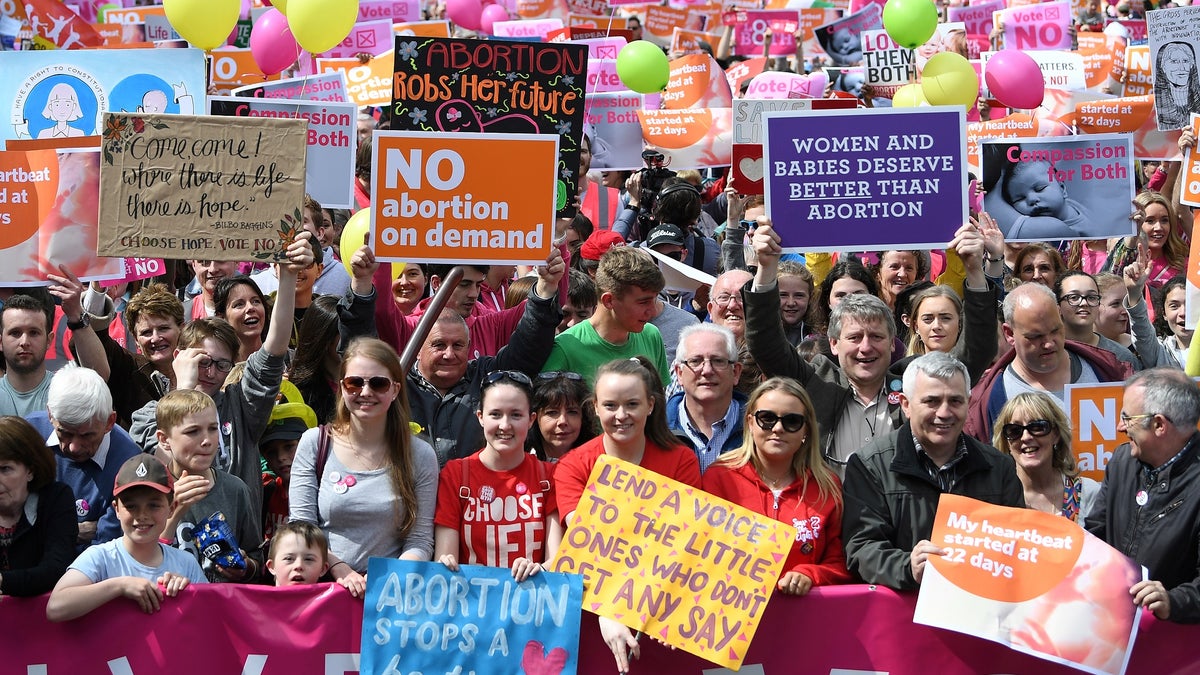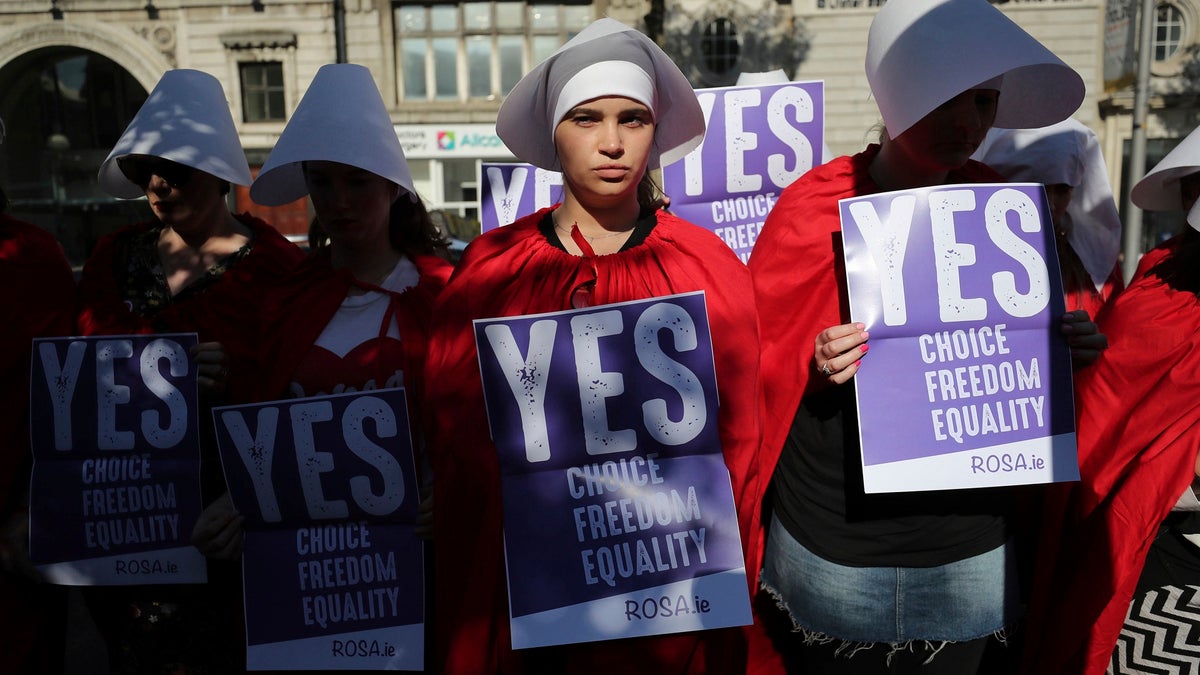Irish citizens overwhelmingly voted Saturday to repeal a landmark referendum that changes the nation's strict anti-abortion laws.
Roughly 66% of voters were in favor of the repeal while about 34% were against it. Overall, more than 2 million Irish citizens turned up at the polls.
With the yes vote on the referendum, the government plans to introduce legislation that would allow abortion within the first 12 weeks of pregnancy -- and even in later in specific cases. It was the fourth time in as many decades that Irish voters have been asked to decide on the issue of abortion.
The debate became center stage in Ireland prior to the vote, with many people publicly wearing buttons that simply say “yes” or “no.” An Irish Times poll previously suggested voters are in favor of repeal, with 63 percent polling yes and 37 percent saying no at the time.
What is the current law?

Demonstrators take part in a pro-life rally ahead of Ireland's vote. (Reuters/Clodagh Kilcoyne)
Abortion is only legal in Ireland in rare cases when the mother’s life is in danger. Voters decided to add a referendum to the nation’s constitution in 1983 confirming the “right to life,” according to the Independent.
“The state acknowledges the right to life of the unborn and, with due regard to the equal right to life of the mother, guarantees in its laws to respect, and, as far as practicable, by its laws to defend and vindicate that right,” the amendment said.
Those in favor of legalizing abortion have claimed more than 170,00 women have traveled abroad to have the procedure done -- a statistic that was corroborated by the Irish Times. But The Associated Press noted that number has drastically fallen in recent years as women have illegally imported drugs via online websites to terminate pregnancies.
What is the new referendum?

Volunteers from Reproductive rights, against Oppression, Sexism & Austerity (ROSA) dressed as characters from 'The Handmaid's Tale', demonstrate in Dublin in favor of the referendum. (Niall Carson/PA via AP)
Ireland will now move to allow abortions after a doctor has determined the pregnancy is less than 12 weeks along, according to the Irish Times. It would also establish a waiting period of 72 between when the doctor makes his determination and when the procedure can take place, according to the newspaper.
An abortion would also be attainable after that 12-week mark, but only in certain circumstances.
During the debate, pro-abortion activists have sought to highlight difficult cases, including that of Savita Halappanavar, a 31-year-old dentist who was denied an abortion. Halappanavar ultimately died after complications of a miscarriage in an Irish hospital in 2012.
The Irish Times reported that the proposed referendum does not include language regarding abortion in the cases of rape or incest.
The government is expected to enact the legislation by the end of the year, the Irish Independent previously reported.
Why is this such a landmark vote?

Fr. Peter O'Kane from Belfast takes part in a pro-life rally in Dublin. (Reuters/Clodagh Kilcoyne)
A traditionally Roman Catholic nation, the vote in favor of the referendum marks a historic shift in attitudes toward abortion for Ireland.
This particular vote also stands out from past referendums dealing with abortion as the extraordinary power of social media versus the tech giants who have played a role in the debate.
Facebook and Google both took steps to restrict or remove ads related to the referendum in a move designed to address global concerns about social media’s role in influencing political campaigns. But foreign, outside groups attempted to circumvent those blocks on social media, according to Politico.
The Associated Press contributed to this report.







































